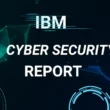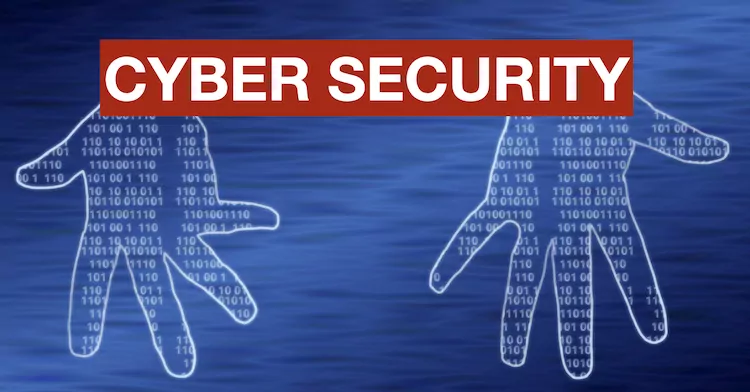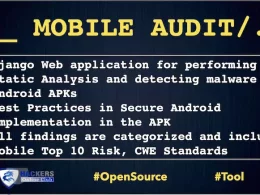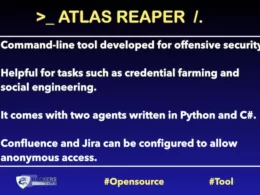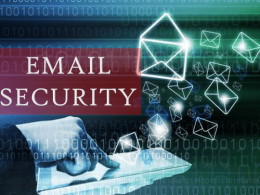Securing endpoints isn’t a well-known term. Unless you work in the field of cybersecurity or have a particular interest in the subject, it’s pretty unlikely that you’ve heard of endpoint security. But that doesn’t negate the fact that it’s vital.
But what is the significance of endpoint security? While employees work remotely, endpoint security is how businesses safeguard their networks from cyber-attacks. Companies must prioritise cybersecurity to protect themselves against the growing threat of cyber-attacks on network data and other information.
Cybersecurity has become a necessity to every industry and organisation. There is a huge demand for the cybersecurity professionals across several industries. Hence, taking up a cybersecurity training would fetch you with the best career opportunities.
The Ten Most Important Reasons for Endpoint Security
- More people are working from home:
Working from home, or even from a library/coffee shop/your car, has never been easier thanks to the internet. That is, as far as obtaining data and performing actual work is concerned. Various external variables make working from home more complex (such as children), but that’s a topic for another day.
Many employees were formerly prohibited from completing work in an office setting, but the internet has given them greater flexibility in this regard. People can connect to their company’s network from almost anywhere. Teachers may now teach from home, accountants can audit while on vacation, and even certain courts are now held online. Hence there is a huge need for Cybersecurity across every industry. Hence, taking up a Cybersecurity course would be the best choice you would make.
- Endpoints are Simple to Hit:
With so much work being done remotely, endpoints are being used more and more, putting the network’s security at risk. Endpoints are more accessible to infiltrate than networks because they lack the network’s tightly managed security.
There are different security measures in place within an office space to ensure that no data breaches occur. And, if those fail, some notifications will notify you of the presence of a potential hazard at any point during the game.
- Allowing for Error… An error by a Human:
We’re not machines; we’re people. We all make mistakes now and then. Not that computers don’t send us error warnings now and again, but one of the benefits of using technology is that it’s dependable, especially when it comes to data storage.
Endpoints are maintained by the humans that use them, and the operator must ensure that all security mechanisms are in place for them to be entirely secure.
Unless the endpoint users are technically knowledgeable, it’s unlikely that they’ll take the same security precautions on their own as they would in an office context. We also forget things. It’s just a part of who we are.
Endpoint security is a method of protecting systems without relying on individuals to do so on their own.
- There is Room for Human Development:
However, not the positive type of human self-improvement. The kind of “improvement” we’re talking about is the realm of cyber dangers, which is constantly developing and driven by humans. When one door to cyber threats closes, another one opens.
Cyber threats do not appear anywhere. People make them, and they’re continually looking for new and better ways to get around the security systems put in place to keep them from doing so.
Endpoint security will remain critical until we can prohibit actual humans from utilising computers to steal information.
- Technology that is Constantly Evolving:
If you own a smartphone or any mobile device for that matter, you are well aware of how frequently things are updated. Updates are required to correct existing software faults. However, every time a new version is released, the security will very certainly need to be updated as well.
While the motivation for seemingly continuous software updates is usually beneficial to the user, it might pose a security risk to the network. Because mobile devices are not constantly monitored on-site, keeping track of required upgrades and ensuring that the security on each particular device is consistent with current security measures can be difficult.
- Endpoints Can Connect to Other Networks:
Even though most businesses have rules and laws limiting what their employees can do with their work devices, it’s quite probable that at least one employee is breaking them. Security is only as strong as its weakest link, as we all know.
It may be as simple as a fast bank account update, or it could be someone peeking at their social network. Using websites outside of the network, whatever it is, exposes the entire system to cyber dangers.
- Follow the Trail of Paper:
Well… Since we’re dealing with the electronic world, this isn’t precisely a paper trail. However, an e-trail is just as crucial. When data “changes hands” through a network, there’s a lot of grey space. It’s not always easy to figure out who did what, where they did it, and why they did it.
Endpoint security can assist in determining who has accessed data and what changes have been made. This reduces the amount of a grey area and gives the organisation more control over the data itself.
This is especially significant for companies like accounting firms with much remote staff who conduct audits in multiple places. Endpoint security can assist in keeping track of any changes to data stored on the network.
- Defend Against Insider Threats:
This does not necessarily imply that a co-worker or a firm employee is a threat, though they could be. However, anyone who works directly with a network, such as a vendor or a contractor, may be able to circumvent security measures.
When there are many third parties involved in a network, maintaining its integrity might be challenging. Many businesses must use contractors and vendors, but doing so exposes the network to potential security risks. Endpoint security is one of the most effective methods for preventing these flaws from becoming a security threat.
- Endpoint security is consistent:
Numerous security measures can be implemented at various points throughout a network. However, there will be flaws unless the entire system is built to function together. Patching together a disconnected system isn’t much better than having no system at all.
Endpoint security systems are designed to function together and have been thoroughly tested to ensure no gaps or loopholes exist. This isn’t to say that one won’t happen, but with an endpoint protection solution that’s designed to work as a whole, it’s less likely.
- Prevent Data Loss… and Money Loss:
As we all know, networks continue to expand as new endpoints are added. Of course, protecting a more extensive network is more complicated. All of the reasons we’ve explored thus far lead to one final point: maintaining network integrity and preventing data loss is the ultimate goal.
If a network isn’t effectively safeguarded, any department on it is vulnerable to threats. As we all know, this will cause a data disruption across the entire network. The loss of data, or the compromise of data, will result in a financial loss. To better understand and practically apply measures to safeguard your data in this manner, you might be interested in taking up the cybersecurity course with placement opportunities.
Conclusion:
The future of cybersecurity is autonomous endpoints that can self-heal and regenerate operating systems and configurations, according to Verizon’s DBIR this year. While CIOs are more budget-conscious than ever, CISOs are concerned with anticipating and protecting their organisations from new and emerging risks.
Closing asset management gaps while safeguarding all endpoints is a must-have for today’s businesses. Several cybersecurity firms now offer endpoint security. You can opt for the Stanford advanced computer security program to get in-depth knowledge about Endpoints in Cybersecurity.

